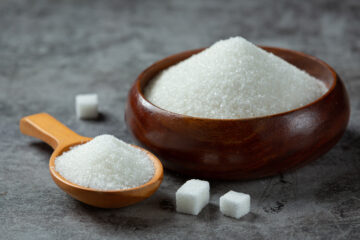

Calorie Control Council Responds to Schiffman et al. Study on Sucralose Sucralose, a low-calorie sweetener, has been extensively tested in more than 100 studies demonstrating its safety for all populations of all ages, including individuals living with diabetes. Research demonstrates that sucralose has no effect on carbohydrate metabolism, short- or...
Read More
Los beneficios para la salud y seguridad establecida de los edulcorantes bajos en calorías y sin calorías están respaldados por décadas de experiencia científica. El subgrupo sobre Dieta y Salud del Grupo Asesor de Expertos en Orientación sobre Nutrición (NUGAG) de la Organización Mundial de la Salud (OMS) publicó su...
Read More
Los edulcorantes bajos en calorías y sin calorías siguen siendo opciones seguras y eficaces para controlar enfermedades no transmisibles como la diabetes, las enfermedades cardíacas y la obesidad WASHINGTON, D.C. (15 de mayo de 2023) – El Calorie Control Council, una asociación internacional que representa a la industria de alimentos...
Read More
Health Benefits & Established Safety of Low and No Calorie Sweeteners Supported by Decades of Scientific Experience The World Health Organization’s (WHO) Nutrition Guidance Expert Advisory Group (NUGAG) subgroup on Diet and Health published its final Guideline on the Use of Non-Sugar Sweeteners. The Guideline includes the following conditional recommendation:...
Read More
WASHINGTON, D.C. (May 15, 2023) – The Calorie Control Council, an international association representing the low-calorie food and beverage industry, responded to the World Health Organization’s (WHO) Final Guideline on the Use of Non-Sugar Sweeteners by reaffirming the health benefits and established safety of low-and-no calorie sweeteners for consumption by...
Read More
A study was published in Nature Medicine entitled, “The Artificial Sweetener Erythritol and Cardiovascular Event Risk,” in which the authors sought to examine potential links between circulating levels of plasma components from the diet and atherothrombotic disease risk in at risk individuals. The findings suggest that varying levels of erythritol as...
Read More